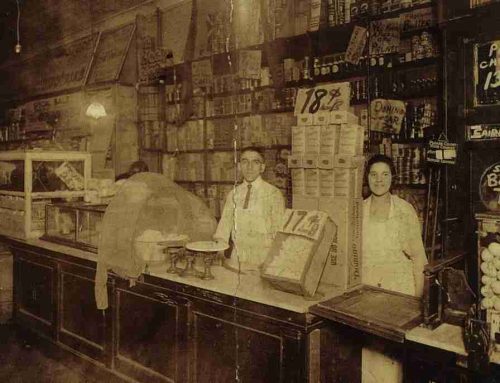Known as much for being stylish as she was for her groundbreaking career as a maritime reporter and elected official, U.S. Congresswoman Helen Delich Bentley wore garments that reflected her civic pride in supporting American designers. Much like her advocacy on behalf of the port, Bentley’s support for American designers demonstrated her lifelong belief in the importance of local manufacturing and commerce.
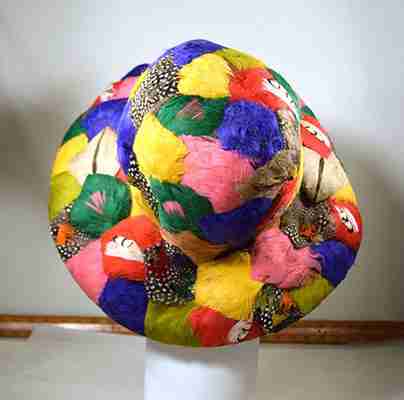


Inspired by her immigrant mother’s journey to America onboard a German steamship, Bentley arrived in Baltimore from her native Nevada in 1945 and quickly made a name for herself reporting on the city’s maritime industries for The Baltimore Sun. Bentley’s syndicated column, “Around the Waterfront,” drew on a wide range of sources—she was as comfortable around longshoremen and union officials as she was with shipping executives and politicians—and frequently broke stories involving the Port of Baltimore and its competitors throughout the nation.
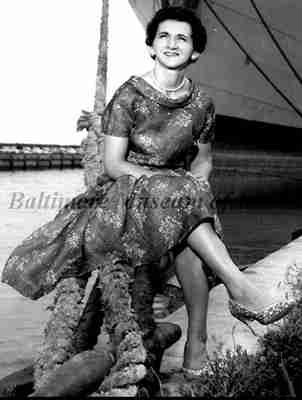
Named the Sun’s first female maritime editor in 1949, Bentley’s growing expertise led her to become the host and producer of WMAR-TV’s popular series “The Port That Built a City and State” in 1950. For fifteen years, until 1965, Bentley used this televised platform to lead the charge to put the aging Port of Baltimore under the modern control of the Maryland Port Authority, and to showcase an amazing collection of custom-made dresses and hats, many of which were donated to the BMI upon her death.
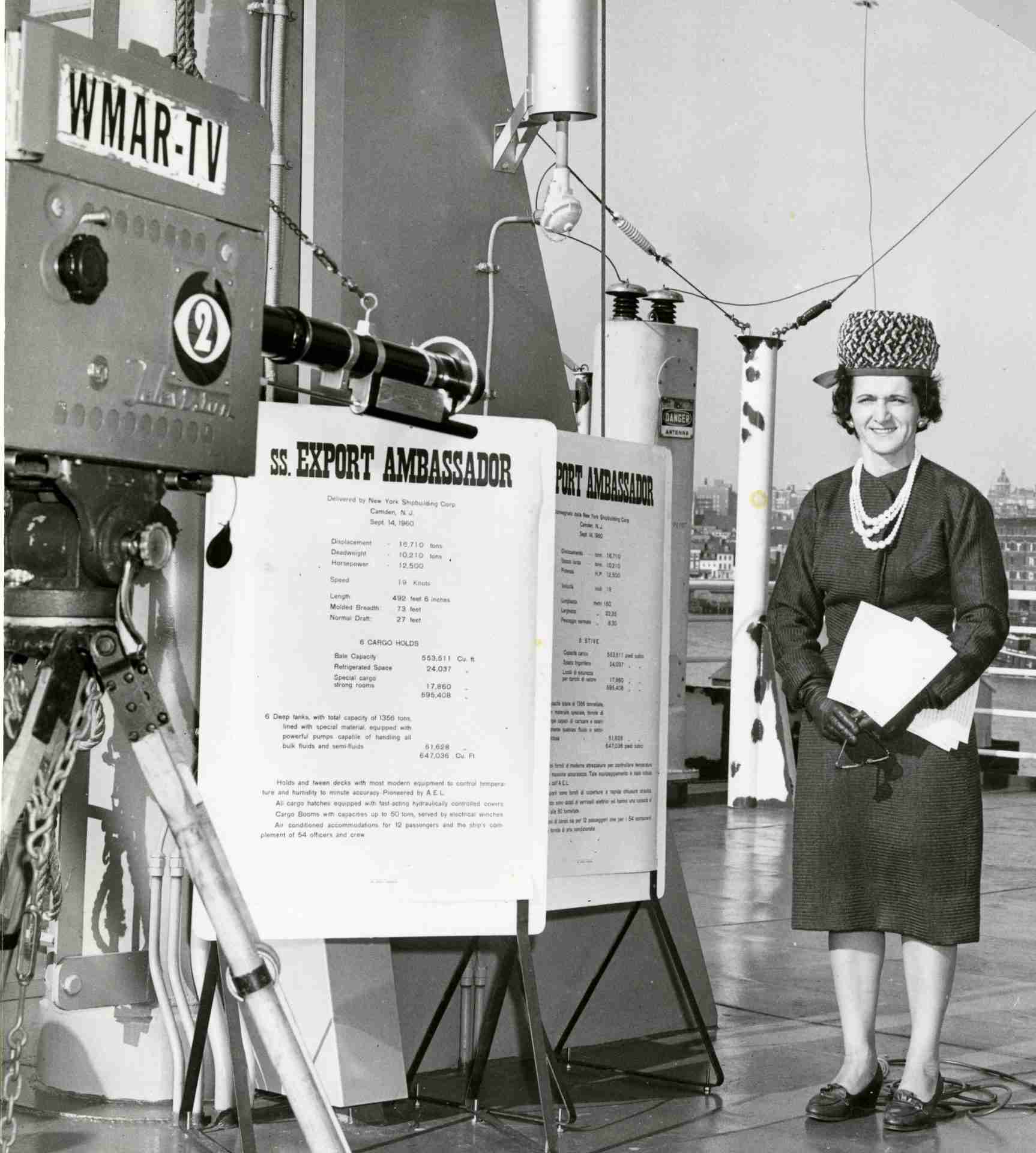
The same civic pride that informed Bentley’s waterfront reporting and fashion choices also eventually guided her into public service. In 1969, President Richard Nixon appointed Bentley Chair of the Federal Maritime Commission, making her the highest ranking woman in the Executive Branch. During her six years leading the Commission, Bentley was a strong proponent for improvements to the nation’s aging merchant fleet.
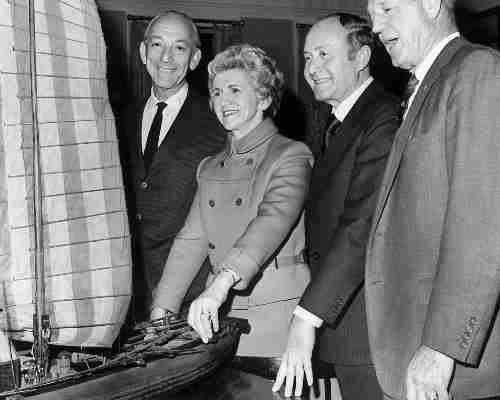
Following stints as a magazine columnist and shipping company executive, Bentley then turned her sights on Congress and was elected to represent Maryland’s 2 nd District in 1984. During her five terms, the Republican congresswoman worked tirelessly on shipping and trade issues, and secured millions of dollars to improve the Port of Baltimore. Bentley also backed numerous “Buy American” campaigns and could often be found driving across her district in an American-made station wagon bearing a “BUY USA” license plate.
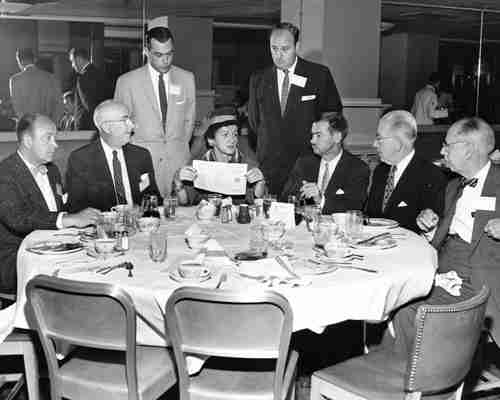
Though Bentley retired from public office in 1995 following a failed bid for Maryland governor, she continued to advocate on behalf of Baltimore’s maritime interests as a consultant right up until her death.
Coupled with a close association to BMI founder Mayor William Donald Schaefer, Bentley’s lifelong interest in promoting Baltimore’s industrial heritage made her a natural advocate for the BMI. In 2003, she joined the museum’s Board of Trustees and quickly became one of its most active members.
During her time as a Trustee, Bentley’s contributions to the BMI were numerous and included chairing multiple Board committees, skillfully guiding the museum through the transition between executive directors, and tirelessly promoting the museum amongst Maryland’s most powerful economic and political leaders. She remained an active trustee until her death in 2016.
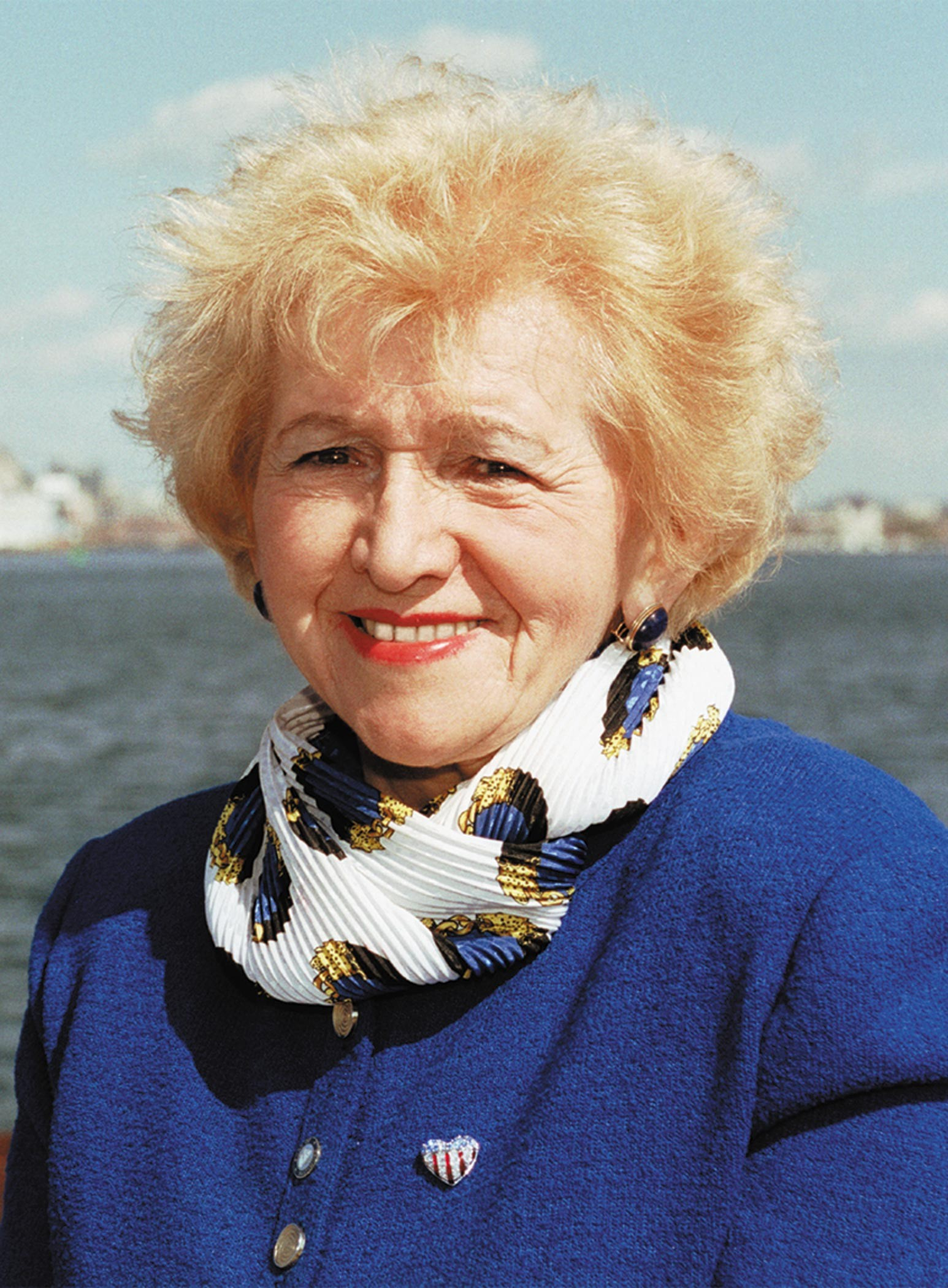
A large scale project was undertaken to preserve, catalog, and rehouse her extensive film collection, bequeathed to the BMI by Ms. Bentley. This initiative was made possible by a grant from the Institute of Museum and Library Sciences (IMLS) through the Museums for America program. This prestigious and competitive award, along with a generous bequest from Bentley’s estate, provided funding for the fragile 16mm acetate films to be preserved in a digital format. Film clips and scripts from the show are accessible through the museum’s online catalog, helping to ensure their historic integrity and accessibility for generations to come.
